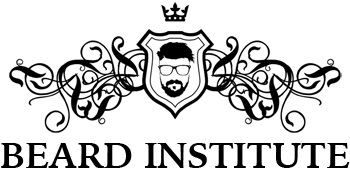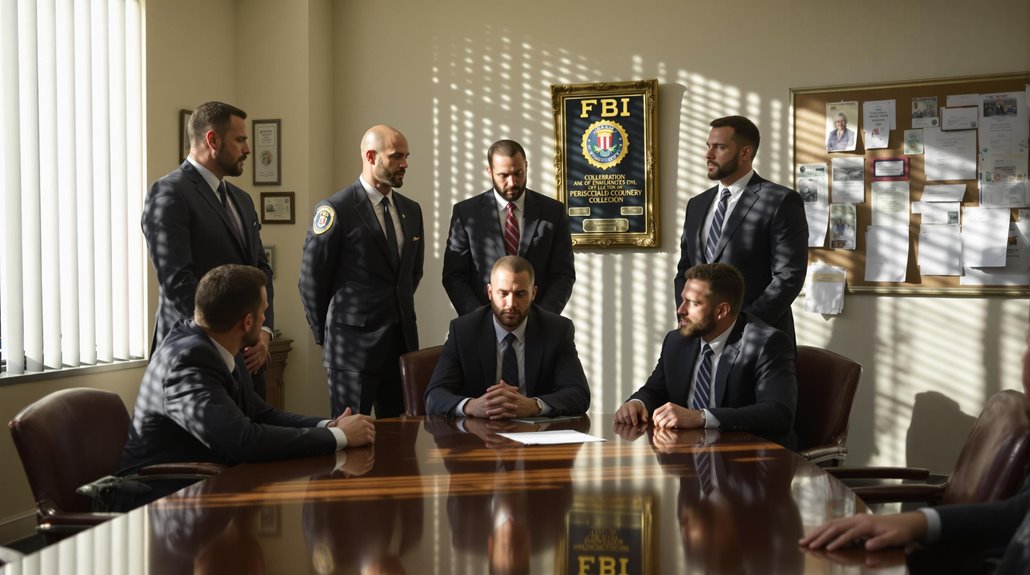How Did the Greeks Curl Their Beards?
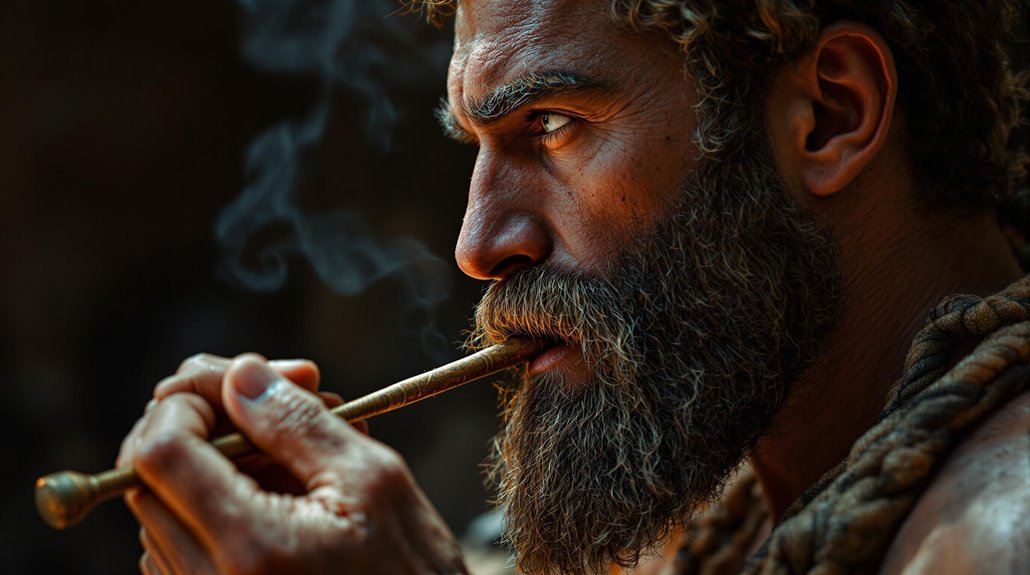
The ancient Greeks took their beards very seriously as they symbolized masculinity and stature. The curls were achieved by wrapping their beards around heated iron rods, forming tight ringlets that represented manhood and social ranking. Part of their grooming routine also involved using olive oil, not only for its conditioning properties but also to prevent damage and maintain a healthy shine. This centuries-old technique has continued to influence modern grooming practices. Stick around to uncover more fascinating insights into how beard styles evolved in Ancient Greece, and their significance in the culture and society.
The Significance of Beards in Ancient Greece
In nearly every facet of Ancient Greek society, beards symbolized not only masculinity but also wisdom. As a Greek man, the way you wore your beard was a reflection of your social status and virtue. The more elaborate your beard style, the higher your standing.
Beards in Ancient Greek culture were so revered that even gods like Zeus were frequently depicted with them. This veneration was not just about aesthetics, but also signified strength and authority. Your beard wasn't just an ornament; it was a representation of your honor and bravery. For the Spartans, a warrior could face severe penalties, including shaving, for cowardice.
And it didn't stop there. Your beard's significance extended into public life too. Ever notice how philosophers and prominent figures were often depicted with well-groomed beards? That wasn't by accident. Instead, it was a visual reinforcement of their image as wise and respected leaders. So next time you think about beard styles, remember the Ancient Greeks who saw them as symbols of masculinity, wisdom, and honor.
Tools and Techniques for Beard Curling
As you consider the significance of beards in Ancient Greece, take a moment to appreciate the precise grooming routines that gave these symbols of masculinity and wisdom their distinctive curl. Male grooming, particularly of beards, was a thorough process, employing specific tools and techniques to achieve a desired look.
Ancient Greeks used heated iron tools, not unlike today's curling irons, to create waves and curls in their beards. They'd wrap sections around rods or twist them with fingers before applying heat, crafting intricate styles that were a reflection of their grooming prowess.
Barbershops, or tonsors, were the center of this art form. Talented barbers wielded these tools, curling and shaping the beards of free men and soldiers. These establishments were more than just places for a trim; they were epicenters of social status, with every curled beard serving as a subtle status symbol.
The Role of Oils in Beard Grooming
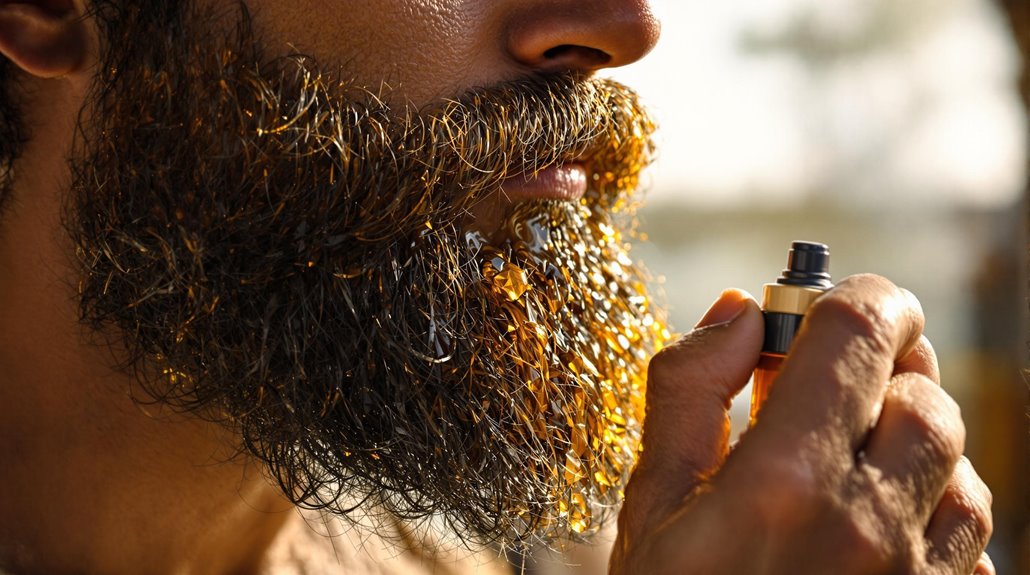
You might not associate olive oil with grooming, but for ancient Greeks, it was a vital part of their beard care routine. They used oils, particularly olive oil, to condition and curl their beards. This practice improved their appearance and promoted healthy beard growth.
Using oils in beard grooming wasn't just about looks, though. It also served practical purposes. The application of oils helped to soften coarse beard hair, making it easier to style and curl. Regardless of using tools or manual techniques, oils made the process more manageable.
But there was more to it than ease. Beard oils were often infused with fragrances, allowing Greek men to exude a pleasant scent. This multi-purpose use of oils added another dimension to the grooming process.
Regular use of oils in beard grooming was fundamental for the Greeks. It prevented beard damage and maintained the shine and health of facial hair. This reflected their cultural emphasis on personal appearance, where a well-groomed, curled beard was a symbol of masculinity and respect. So, next time you think about oils, remember, they're not just for cooking. In ancient Greece, they were an important part of beard grooming.
Cultural and Social Implications of Beard Styles
Beard styling wasn't just a grooming routine for the ancient Greeks; it was a profound cultural practice. Their beard styles, achieved using specialized tools, were much more than just appearances. They signified masculinity, status, and wisdom, making them an investment of time and effort.
Consider this: you're an ancient Greek man. Your beard isn't just facial hair—it's a symbol of your manhood and rank in society. Be it the tightly curled styles or the well-groomed beards of philosophers like Socrates and Plato, your beard is an indication of your wisdom. It's no wonder you'd dedicate time to grooming it!
And it didn't stop there. The cultural significance of beards was such that Spartan warriors faced penalties for shaving. Their beards represented honor and bravery, vital elements of their warrior code. As you walk around your city, you'd see art and sculptures featuring bearded figures, reinforcing the importance of facial hair in symbolizing strength and virility.
Notable Bearded Figures in Greek Mythology
Often, when picturing Greek mythology, the images of Zeus, Poseidon, Heracles, and Dionysus come to mind. These bearded men of ancient Greece are iconic, their curly beards symbolizing diverse aspects of their characters and domains.
Zeus, the king of the gods, was always depicted with a long, curled beard. It was a symbol of his power and wisdom. You can imagine the mighty Zeus, his beard a reflection of his authority, ruling over the other gods and mankind.
Poseidon, god of the sea, was another bearded figure. His beard, also curled, emphasized his connection to the tumultuous waters he commanded. Picture Poseidon, his beard as wild and unruly as the waves he conjured.
The heroic Heracles, better known as Hercules, was often illustrated with a rugged, curly beard. It reflected his strength and courage, setting him apart from mere mortals.
Lastly, Dionysus, the god of wine and revelry, was portrayed with a flowing, curly beard. This spoke to his association with nature and fertility. His beard, like his character, was free and untamed.
These figures showcase the significant role of beards in representing masculinity and divine attributes in ancient Greece.
Influence of Military Practices on Beard Styles
In the rugged world of ancient Greece, military practices had a profound influence on beard styles. The Ancient Greeks saw beards as symbols of masculinity and respect, leading to careful grooming routines. Can you imagine being a Spartan warrior, growing your beard long to maintain your image? It was such a significant part of their identity that beardless soldiers were punished.
This military influence didn't stop at the battlefield. It extended to broader society, where beards were highly revered. They were the mark of strength and valor, so much so that they were often depicted in ancient art and sculptures.
To emphasize the importance of these military practices on beard styles, here's a list of significant points:
- Spartan warriors were known for their long beards, a symbol of strength and masculinity.
- Beardless soldiers faced punishment, reinforcing the societal value of facial hair.
- Greek soldiers curled their beards using oils and grooming techniques, reflecting societal values and aesthetics of masculinity.
But it wasn't all about aesthetics. Practical considerations played a role too. Alexander the Great prohibited beards, fearing enemies might grab them during combat. Now, that's a practical influence on grooming trends!
Comparing Greek and Roman Facial Hair Trends
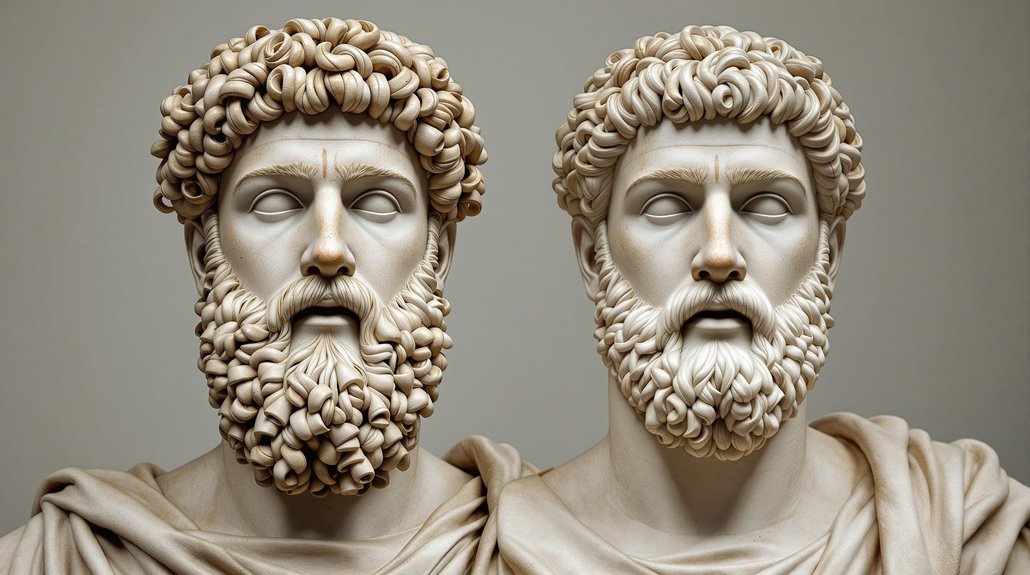
If you were to travel back in time, you'd find a stark contrast between the grooming trends of the Greeks and Romans. The Greeks, for instance, were fans of facial hair. They saw beards as a mark of wisdom and virtue, going as far as curling their beards to achieve a tightly coiled look. Their tools? A mixture of specialized instruments and oils to maintain the curl.
On the other hand, the Romans went for a cleaner look. Shaving became a trend, thanks to Greek barbers who introduced the practice. It wasn't just a fad, but a sign of discipline among the elite and military. The widespread use of razors also led to a decline in the popularity of beards. It was a reflection of their cultural values: order and cleanliness above all.
In the history of beards, Greek and Roman facial hair styles were more than just trends. They were symbols of societal norms, reflecting the values and philosophies of their time. So next time you're grooming, remember you're partaking in a ritual as old as civilization itself.
Ancient Beauty Standards and Facial Hair
Imagine yourself in ancient Greece, where beards weren't just facial hair, but symbols of masculinity, respect, and wisdom. Here, the act of curling one's beard was more than just a grooming practice; it was a declaration of your social standing and a demonstration of your conformity to aesthetic ideals and cultural norms.
To achieve the desired curls in their beards, Greek men would use special tools, including curling irons made from metal. This wasn't a random choice, but a reflection of the ancient beauty standards that valued styled beards. Greek gods, such as Zeus, often appeared with curly beards, reinforcing this cultural expectation.
When thinking about the significance of beards in ancient Greek society, consider these points:
- The beard was not only a symbol of masculinity but also of wisdom and respect.
- The act of curling one's beard was an adherence to the beauty standards of the time.
- Changes in beard styles over time mirrored broader shifts in Greek cultural values and beauty ideals.
Evolution of Beard Styles in Greece
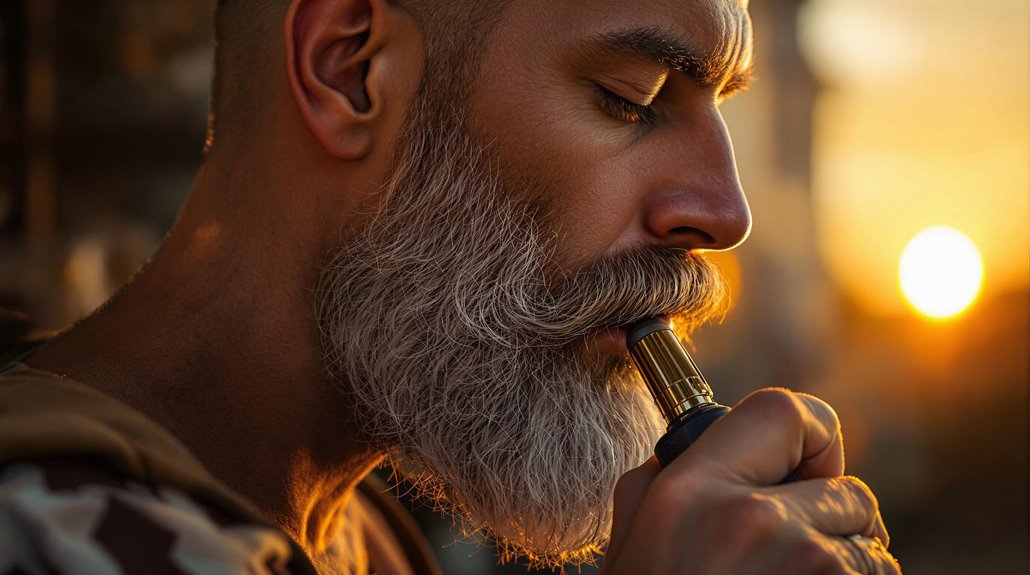
While tightly curled beards symbolized the epitome of Greek style, it's fascinating to note that this wasn't always the norm. You see, the Greeks valued beards as potent symbols of masculinity. But, it wasn't about growing just any beard. They took pride in carefully grooming and curling their beards, often with the help of tools such as curling irons and heated metal rods.
Influence from the Ancient Egyptians, renowned for their ornate grooming habits, played a part in this shift. Over time, the Greeks moved from these elaborate beard styles to favor tightly curled ones. Depictions of revered Greek gods, like Zeus, often showcased such styles, reinforcing this societal ideal.
But it wasn't all about aesthetics. In Spartan society, a well-groomed, curled beard held deeper significance. Spartan warriors risked punishment for cowardice if they allowed their beards to be shorn, emphasizing the cultural importance of facial hair.
Modern Interpretation of Greek Beard Styles
Drawing from the past, modern interpretations of Greek beard styles breathe new life into the iconic, tightly curled look. Currently, men all around the globe are adopting these styles, blending traditional curling techniques with contemporary grooming products to recreate this iconic look.
Without a beard, a man might feel less masculine in the present society, just as in ancient Greece. You might notice that these modern interpretations are reminiscent of the well-groomed, curled beards of Greek philosophers and warriors, symbolizing wisdom and strength.
To achieve this look, present-day men follow a few key steps:
- They initially grow a full beard.
- They then apply special beard oils and pomades, emulating the careful grooming process of the ancient Greeks.
- Ultimately, they use hot iron tools, similar to those used by the Greeks, to curl their beards tightly.
It's a nod to the past and a celebration of the cultural significance of facial hair. And while not every man can pull off such an intricate style, those who do are keeping the respect for bearded styles alive, just as the Greeks did in their tonsors.
